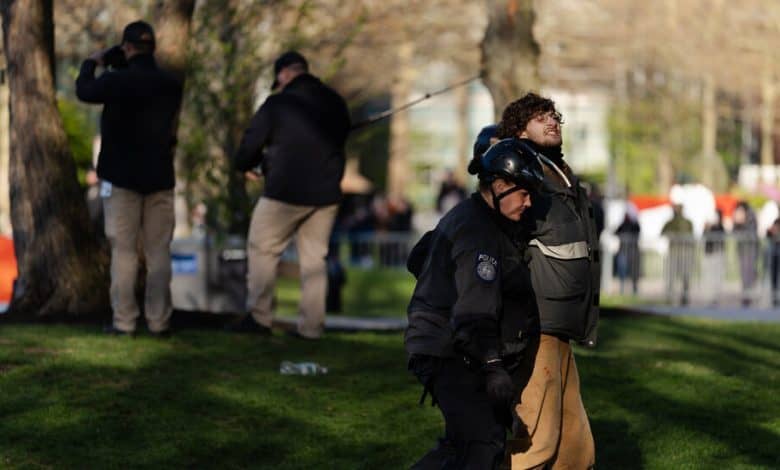As Colleges Weigh Crackdowns on Protests, Questions About Outsiders Linger

Amid a dizzying array of standoffs involving pro-Palestinian demonstrations and encampments at colleges, schools that cracked down on protesters over the weekend have given varying justifications for their actions, while others sent mixed signals with their inaction.
Behind it all was a central question confronting university leaders across the country: When does a demonstration cross the line?
Colleges have cited property damage, outside provocateurs, antisemitic expressions or just failures to heed warnings as reasons to clear encampments and arrest students. Student groups have strongly denied or questioned many of those claims.
Northeastern University in Boston, Washington University in St. Louis, Indiana University Bloomington and Arizona State University had police forces move in on demonstrations on Saturday, leading to more than 200 arrests. At other schools — including Columbia, Penn, Harvard and Cornell — an icy tension lingered on Sunday as leaders warned about possible consequences for demonstrators but had yet to carry them out.
At Washington University, where campus police officers made 100 arrests on Saturday, administrators said that a group had violated university policy by beginning to set up a camp on the east end of campus. Police officers arrested people who refused to leave “after being asked multiple times,” university administrators wrote.
“No one has the right to disrupt the ability of people in our community to learn and work,” they said.